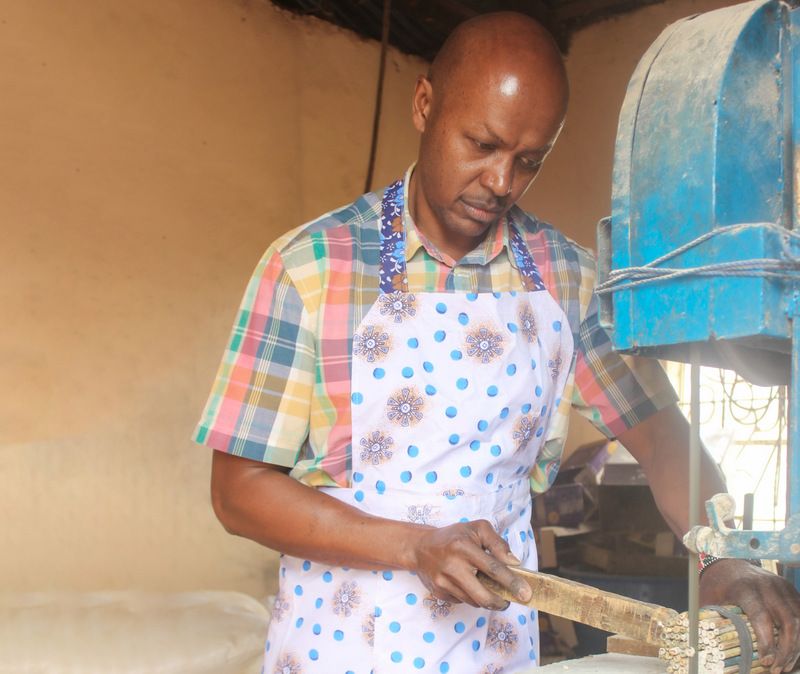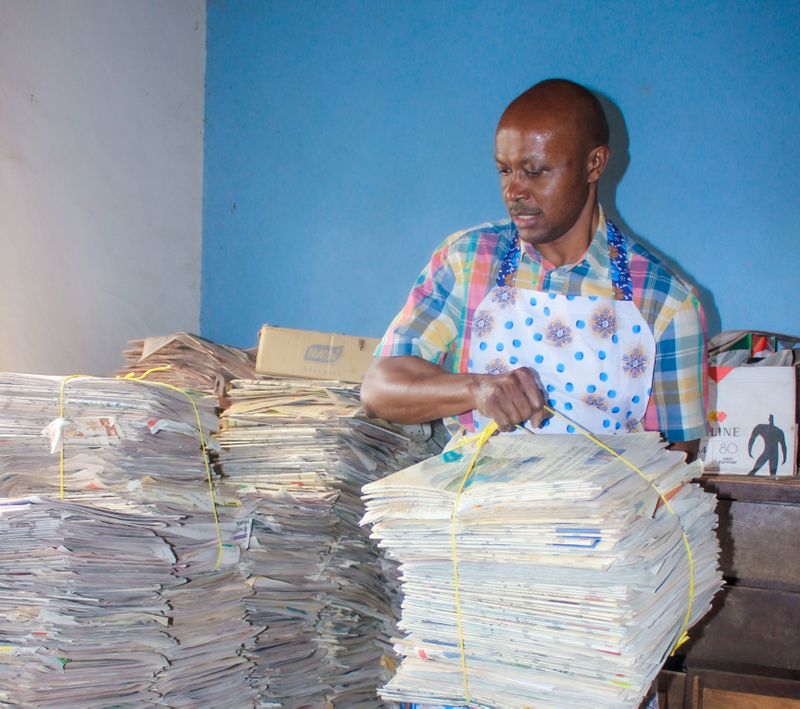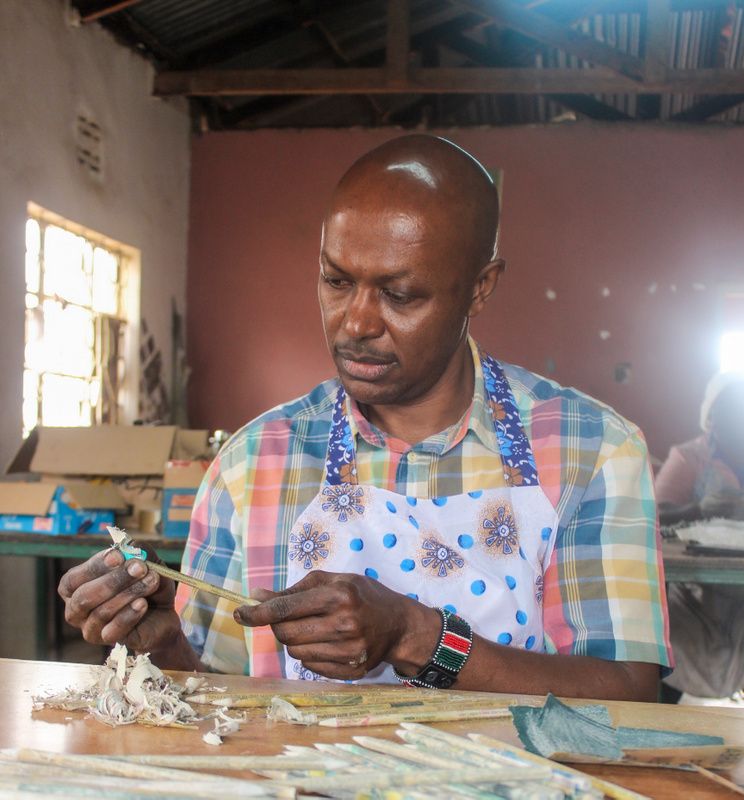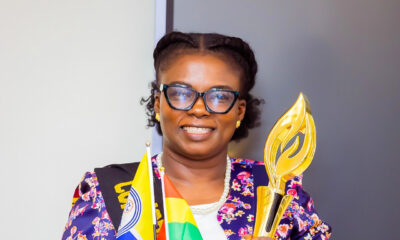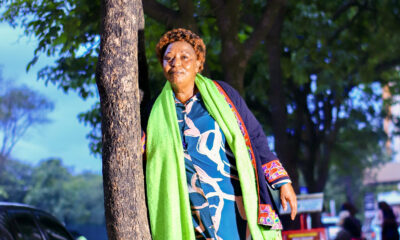News
Kenyan Entrepreneur Transforms Trash into Treasure with Green Pencil Limited
In 2012, Antony Kirori embarked on a radical new journey. Eight years earlier, Kenya had passed regulations prohibiting the felling of trees for pencil production. That necessitated the import of all wooden pencils. Kirori, who in 2012 was running a garbage collection company, had given this some thought. His solution? Since paper was also derived from trees, why not make pencils from paper?
The result was Kirori’s venture, Green Pencil Limited, established in June 2012.
“As a former garbage collector, I became acutely aware that when paper decomposes in landfill sites, it generates methane gas, which is 25 times more potent than carbon dioxide. Globally, paper waste accounts for approximately 26% of total landfill waste. It logically followed, particularly with the growing concern about climate change, that we needed to reduce paper waste entering landfills. This raises a pivotal question: How can we prevent paper from reaching landfills, given the colossal quantities involved?” He explained, speaking at his company’s stand at the African Climate Summit, held in Kenya in September.
The entrepreneur’s vision departed from the traditional use of wood and instead embraced recycled newspapers to craft eco-friendly pencils, placing a strong emphasis on environmental sustainability and job creation.
“We source old newspapers from registered groups of youth, women, and people living with disabilities, contributing to community job creation,” Kirori revealed.
Located in Juja, in central Kenya, the company has a monthly production capacity of upwards of 100,000 pencils, achieved through a meticulous manufacturing process spanning 18 steps.
This process transforms discarded newspapers into durable pencil casings capable of securely housing graphite cores, delivering exceptional sharpening performance, and withstanding exposure to water, just like wooden pencils.
The Green Pencils factory is located on premises owned by Kirori and his family, which saved the business during the COVID-19 pandemic.
“I am immensely grateful that we chose to operate from our own premises. Had we been working from rented facilities, the challenges posed by the pandemic would have been even more daunting. Moreover, this property provides ample room for expansion when the need arises,” he reflected.
Initially, the company employed ten individuals, peaking at 44 employees before the COVID-19 outbreak. Presently, the workforce has been reduced to just six personnel. However, Kirori remains optimistic.
“Although our staff numbers have reduced, we maintain a substantial inventory in our warehouse, allowing us to operate efficiently with minimal personnel until business fully rebounds,” he asserted.
Green Pencils retail at prices ranging from 20 Kenyan shillings (approximately US$ 0.14) to 45 Kenyan shillings (about US$ 0.31). Bulk buyers enjoy cost advantages stemming from economies of scale.
What sets these pencils apart is the company’s ability to offer coloured branding or engraving, a feature that is absent in traditional wooden pencils. Additionally, the graphite cores are 30% more affordable than their wooden counterparts, according to Kirori.
In 2016, Nancy Kinyanjui, a co-founder of Nairobi-based Provisions Limited, which offers artisan products sourced and created in Kenya, enlisted Green Pencils as a supplier.
“We love that the pencils are made in Kenya and are also eco-friendly. They are hand-rolled using newspapers collected from the community. After several years of working together, Antony also accommodated our requests for colour pencils, so we now have more options to offer our clients,” Kinyanjui said.
“Compared to pencils made from trees, the ones manufactured by Kirori are of very good quality, unique in appearance, and eco-friendly. Even better, they support our local economy in Kenya,” she added.
Catherine Mungai is the marketing manager at a company that owns several serviced apartment hotels in Nairobi and has been in business with Kirori’s firm since 2016.
“As a sustainable business, we have taken meaningful steps towards addressing climate issues. Our commitment to sustainability extends to our meeting rooms, where we have switched to eco-friendly green pencils. We understand that tackling climate challenges requires the active involvement of diverse stakeholders,” Mungai said.
Challenges include a lack of access to government markets and supermarkets, which still favour the use of imported products. Kirori lamented the absence of incentives like tax breaks to promote green enterprises, even though products like green pencils can play a significant role in combating deforestation.
However, that doesn’t mean that the company has not been recognised for its contribution.
In November 2013, the company received the Brand Kenya Ambassador for Innovation and Entrepreneurship Award, recognising its innovative approach to pencil production through paper recycling and the creation of infinity road studs (cat eyes) to enhance night-time driving visibility.
Additionally, growing recognition of climate change means that companies like Mungai’s Trianum Hospitality Ltd are now not the only ones looking for sustainability partners. Kirori’s timing may be perfect for the market.
“Climate change is an undeniable reality that both Kenyans and organisations are awakening to. Going green is no longer optional, and traditional corporate models are evolving towards more sustainable practices that prioritise environmental respect,” Kirori said.
Kirori is increasingly targeting corporate entities and eco-friendly organisations by offering customised pencils. Corporations can market their brands, green credentials, and CSR (corporate social responsibility) activities by having the pencils engraved with their company branding, he explained.
The environmental entrepreneur also continues to push into the retail and government procurement markets, citing expanded production capacity as an asset. Additionally, the company is exploring opportunities for international exports. At the same time, he envisions diversifying the company’s product range to include pens, eye makeup pencils, and road signs.
“The ultimate goal is to contribute to the achievement of the UN’s Sustainable Development Goals (SDGs), particularly SDG 12, which pertains to responsible consumption and production,” Kirori concluded.
Story/Photo Credit: Anne Ndungu for bird story agency

